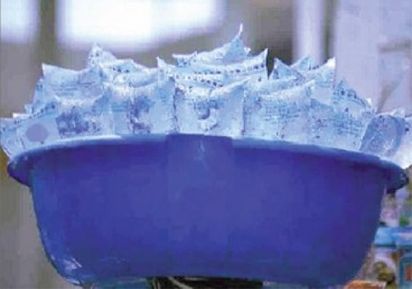Sierra Leone’s Health Ministry has warned producers of packaged water to abide by the laid down procedures or be forced to shutdown.
The latest warning comes after the Ministry said it has acquired technical and financial boost from the world Health Organization and the World Bank that will enable it test water quality and embark on rigorous monitoring of the activities of packaged water producers.
A deficiency in the country’s ability to provide portable water for its population has opened a business opportunity for the private sector.
Over the last two decades since the end of the 1991-2002 civilwar, the packaged water business has proliferated.
There are over 100 such water brands sold across the country, mostly in the capital, Freetown.
Very few of them have the right facilities to produce quality products, raising issues of health concern.
The recent MICS 2017 conducted by Statistics Sierra Leone revealed that all water sources, both household and at source, were found to contain 95 percent E.coli contamination.
This means that they have either human or animal feces. E. coli [Escherichia coli] is a bacteria that normally live in the intestines of healthy people and animals.
Most varieties of the microorganism are harmless or cause relatively brief diarrhea but a few particularly nasty strains can cause severe abdominal cramps, bloody diarrhea and vomiting.
Doris Bah, Program Manager at the Water, Sanitation and Hygiene (WASH) department in the Ministry of Health and Sanitation (MoHS), attributed this situation to the lack of appropriate treatment facilities by most producers.
She said their findings revealed that some producers use only ordinary sponge to filter the water.
“The Ministry is going to be very rigid this time round,” said Ms Bah.
Previous findings have also revealed that some packaged water producers packaged the water directly from water wells without treatment.
The ink used by some of them to label their products also affects water quality and smell, said Mohamed Kargbo, Head of Water at the Electricity and Water Regulatory Commission.
He said from now on the commission will shut down any producing company that doesn’t meet the set standard.
KC/as/APA


